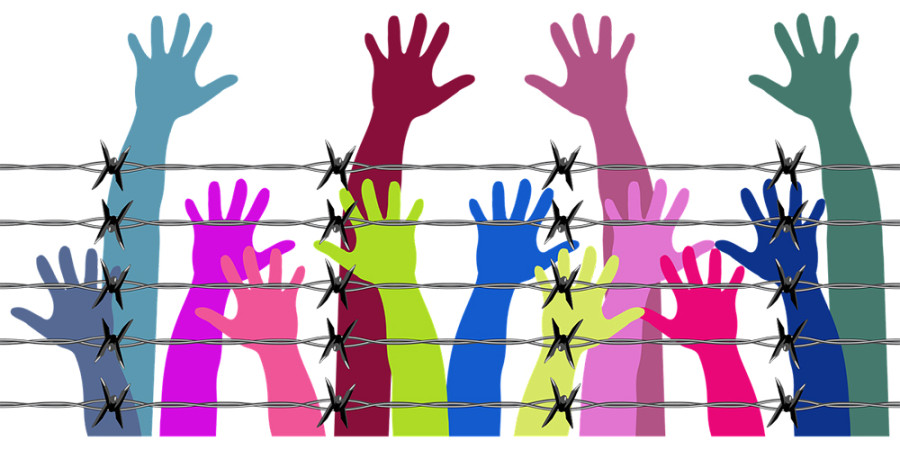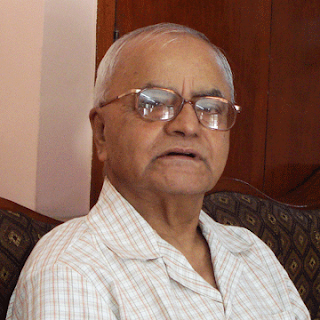Columns
Prognosis of democratic governance
Nepal has all the characteristics of bad governance despite the successful exercises of holding elections when needed.
Lok Raj Baral
Modern democracy faces multifarious crises worldwide. Even in the case of well established democratic systems, questions have been raised about their failure to address emergent national, regional and global developments of unprecedented nature and scope. Ideological foundations are floundering; organisations are divisive and weakened; leaders are increasingly becoming self-centred if only to promote their petty interests; and the masquerading roles of money power and unscrupulous elements who have been able to gain access to power and strategic elites have contributed to making democratic governance a mere formality.
Nepal has all the characteristics of bad governance despite the successful exercises of holding elections when needed. The elections held for the Constituent Assembly and smooth transfer of power from time to time are good examples of people’s participation in the electoral processes. Yet, such exercises are meaningless unless they provide people with good and clean governments that deliver along with laying the foundations for social justice, accountability and efficiency.
Lethargic and corrupt
Democracy in Nepal suffers from structural, functional and ideological crises. Structurally, the system has a built-in scope for corruption, manipulation for self-aggrandisement and patronage routes with which brokers (bichauliyas) take advantage to corrupt the entire mechanism of government. Politicians are at their beck and call, and the bureaucracy is lethargic and corrupt and has also been made inept by politicians. The prime minister promises but does not deliver; he is self-congratulatory but does not introspect; and applauds wrongdoers but fails to set an example by punishing them. His own attitude and style, as well as his party colleagues’ unnatural and shameful scramble for power, have made the government incredible.
Lack of understanding of the essence of constitutional spirit, and a growing tendency to violate the constitution that smacks of old Rana and Shah ‘peremtory’ and ‘pre-emptory’ rule seems to kill the initiative of individual ministers. Since the prime minister wants to be pervasive in all ministerial functions, it creates an adverse impact on the performance of ministries. Thus, almost all institutions created by the constitution have become victims of executive dominance.
The ideological duality of the Nepal Communist Party government—tending to practise both features of the one-party authoritarian model and liberal democracy as stipulated by the constitution—have made the ongoing exercises contradictory. Yet, the realities of Nepal do not allow any political party to be oblivious to the orientation of general Nepalis who want better services for ordinary people.
During the recent election held in Delhi, India, tall talk and promises of the prime minister and the home minister didn’t go well with the people as they, instead, preferred to repeat the massive mandate for the Kejriwal-led Aam Aadmi Party that had tried to address basic issues such as health, education and electricity. It has been proved that national issues and foreign policy agendas hardly matter for common voters despite much efforts of central leaders to whip up nationalistic sentiments directed against antagonistic neighbours and others.
In Nepal, KP Sharma Oli could, however, take advantage of the situation by cashing in on the 'undeclared Indian blockade' that had made the general people suffer shortages of consumer items. Yet populism is a short-lived phenomenon when the leaders who come to power on emotional support fail to deliver and refurbish the rotting order. Consequently, all directives given from above become meaningless. Lack of governmental innovations and authoritative compliance to them makes the government unpopular despite the huge mandate given to it by the people. This has happened to the KP Oli government, making it no different from previous governments headed by his own colleagues as well as by other parties.
What lessons can be learnt by Nepali political leaders from the malfunctioning of governments, rampant corruption, eroding public faith in the system and creeping partisan trends in various organs of government? Democracy’s vitals are being eaten up by lack of short- and long-term visions of leaders regardless of political parties. Those who indulge in the blame game repeat the same when they come to power. Old habits die hard and therefore politicians seldom prefer to inculcate a new political culture, making institutions more important than individuals. Without striking strong roots, which is possible only by nurturing democratic institutions, democracy remains not only fragile but also short-lived.
Democracy in classical sense is dependent upon political parties and vibrant civil society. The decline of the party system all over the world has hit democratic practices with parties’ leaders and workers failing to separate themselves from the trends of commercialisation of politics. Such trends have made parties integral parts of business lobbies, brokers , smugglers and mafias who have been able to make inroads into the power centre. So the scandalous stories that dominate the media today show the interrelationship between politicians, contractors, power brokers and other dealers.
What can be done
Then what can be done to redeem the system? Can Nepali politicians rediscover democratic governance in order to make it relevant to our realities? Conventional democracy and the classical party system cannot make democracy sustainable because of the great deal of rot afflicting the system. First of all, a new beginning has to be made to salvage the ailing system. Restructuring the electoral system alone will not suffice if the same kleptocratic trends continue to dominate politics. Second, parties are turning out to be mere electoral instruments and have failed to prove good governance and credible oppositions. Third, with leaders becoming too self-centred and selfish, the much-touted organisational solidarity is elusive, thus making politicians engage in the management of leaders and posts rather than in concentrating on democracy’s health and development.
As of now, democracy’s future is unpredictable with parties becoming only instruments for electoral purposes, reducing the capacity of managing their organisations which have a great impact on making democracy a ritualistic enterprise. Finally, people cannot wait for long if elected governments fail to take drastic remedial measures to correct the ailing system. All parties should rethink what new reforms can be made in the existing system, and what visions they have for making democracy more acceptable and credible.
***
What do you think?
Dear reader, we’d like to hear from you. We regularly publish letters to the editor on contemporary issues or direct responses to something the Post has recently published. Please send your letters to [email protected] with "Letter to the Editor" in the subject line. Please include your name, location, and a contact address so one of our editors can reach out to you.




 11.12°C Kathmandu
11.12°C Kathmandu















